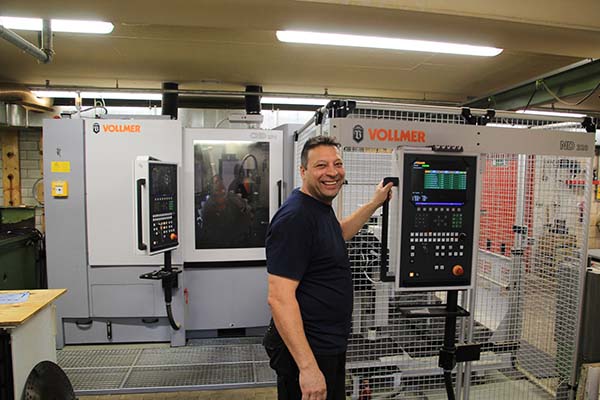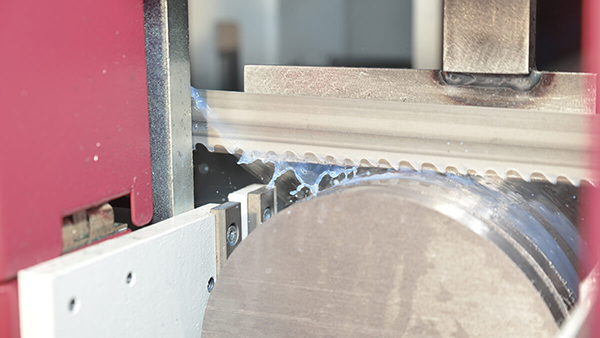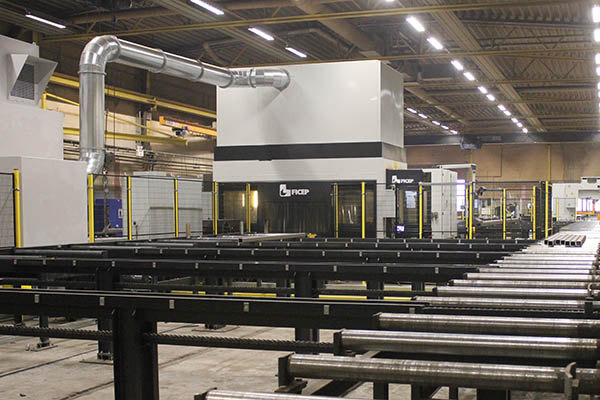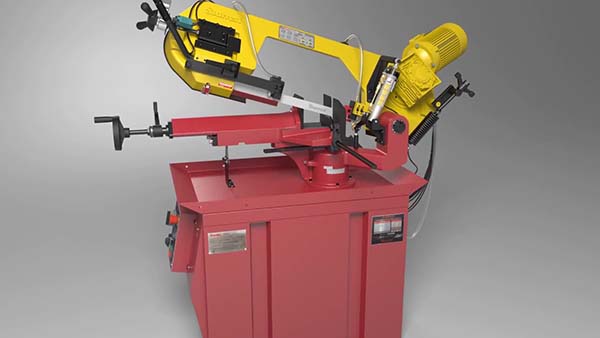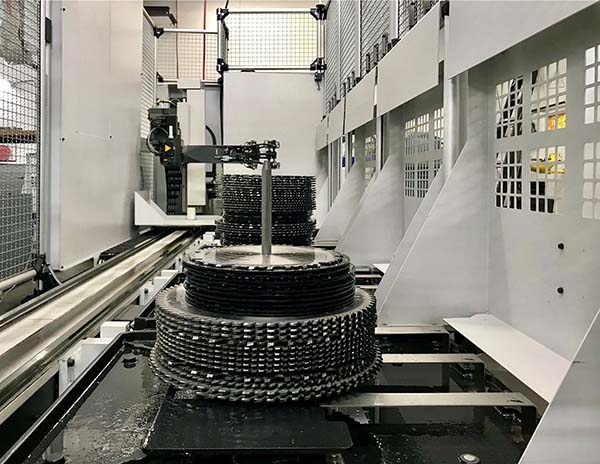
The Holzwerk Baur sawmill, based in Wain, Upper Swabia, processes around 180,000 solid cubic metres of wood each year and exports its products across the world. Sustainability is a key priority for the sawmill, which sources its material from the local region and puts every last shaving to use.
To ensure efficient wood cutting, Holzwerk Baur runs around 250 saws every day, kept sharp using machines supplied by Vollmer. Among many machines in the grinding shop is a Vollmer CHD 270 grinding machine for carbide-tipped circular saw blades, set up with an automated system to run around the clock.
The Vollmer CHD 270 offers eight CNC-controlled axes and measuring equipment able to machine carbide-tipped circular saw blades in a single set-up. It can sharpen even complex tooth geometries, including chip-breaker grooves, chamfers on the pre-cutting and finishing teeth, and Braunschweig tooth or chip-guide notches. Every circular saw blade is loaded into its precise grinding position automatically, regardless of diameter. A measuring sensor then determines the tooth geometry, in other words, the hook angle, radial and tangential clearance angles, cutting width, blade thickness, and side projection. The automated Vollmer ND 320 handling system uses two loading carriages, each of which can be loaded with up to 50 circular saw blades.
For Holzwerk Baur, the Vollmer sharpening machines are the key to sustainable wood processing. Able to process 80 metres of material per minute, the profiling line cuts the logs into clean squares, which are then processed by up to 10 saw blades into boards, frames and floorboards. Every last scrap of wood is used, with wood chips going to the paper mill, sawdust to chipboard manufacturers, wood shavings to the filler industry, and bark to gardening and landscaping firms (or the company’s own heating system).
For further information
www.vollmer-group.com







